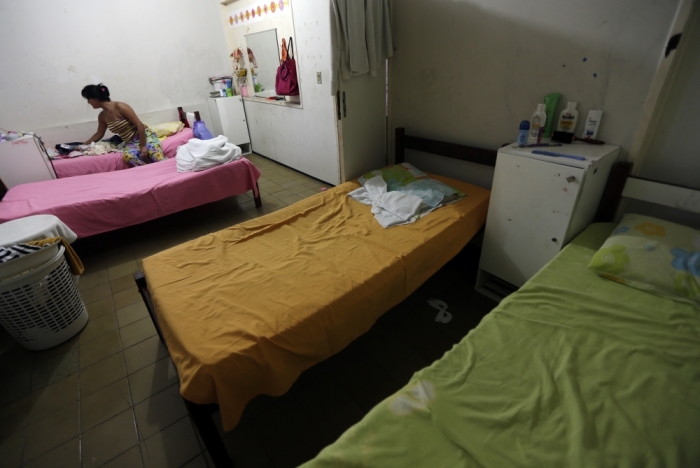Nuns Go Undercover as Prostitutes to Save Sex Trafficking Victims

A network of over 1,100 Christian nuns have reportedly been dressing as prostitutes and infiltrating brothels around the world in a mission to save victims of sex trafficking.
"I'm not trying to be sensational, but I'm trying to underscore the fact this is a world that has lost innocence ... where dark forces are active," John Studzinski, the investment banker and philanthropist who chairs the Talitha Kum network, told Reuters.
"These are problems caused by poverty and equality, but it goes well beyond that."
Studzinski explained that the nuns also sometimes dress as prostitutes and walk the streets in order to catch sex predators.
The network explains on its website that its mission is to "share and maximize the resources that religious life has on behalf of prevention, protection and assistance, awareness raising and denouncement of trafficking in persons."
The group operates in at least 80 countries, Fox News noted, and was founded in 2004.
Studzinski explained that the nuns act on their own, and don't trust help from others.
"They do not trust governments, they do not trust corporations, and they don't trust the local police. In some cases they cannot trust male clergy," he said back in November. "They work in brothels. No one knows they are there."
Talitha Kum also raises money to buy children sold into slavery in places across Africa, India, Brazil, and the Philippines, in order to rescue them from sex traffickers.
"This is a new network of houses for children around the world who would otherwise be sold into slavery. It is shocking but it is real," Studzinski added.
Some anti-trafficking groups have suggested that the religious sisters might be doing more harm than good, however.
"When you the buy the victim, you just drive up the cost for brothel owners or traffickers trying to sell in the future," Christina Arnold, founder and CEO of Prevent Human Trafficking, told Fox.
"It sounds like a good idea but it's actually a ludicrous one," Arnold argued.
"People have their hearts in the right place," she added. "But are these nuns going to go into fishing boats? Because that's where the biggest number of slave traffickers are right now."
The role of prostitution in sex trafficking has caused controversy in the past, with several anti-trafficking groups speaking out earlier in 2015 against Amnesty International's push to legalize prostitution.
While Amnesty has argued that legalizing prostitution around the world would help advance the rights of sex workers, the National Center on Sexual Exploitation said that such a move would not prevent grave abuses.
"The types of abuse and brutality that comprise daily life in the sex trade are nothing short of torture," Dawn Hawkins, executive director of NCOSE, said back in August.
"By voting in favor of a policy to decriminalize prostitution, Amnesty International has abandoned the victims of abuse and exploitation to the whims of pimps and sex exploiters," she added.




























